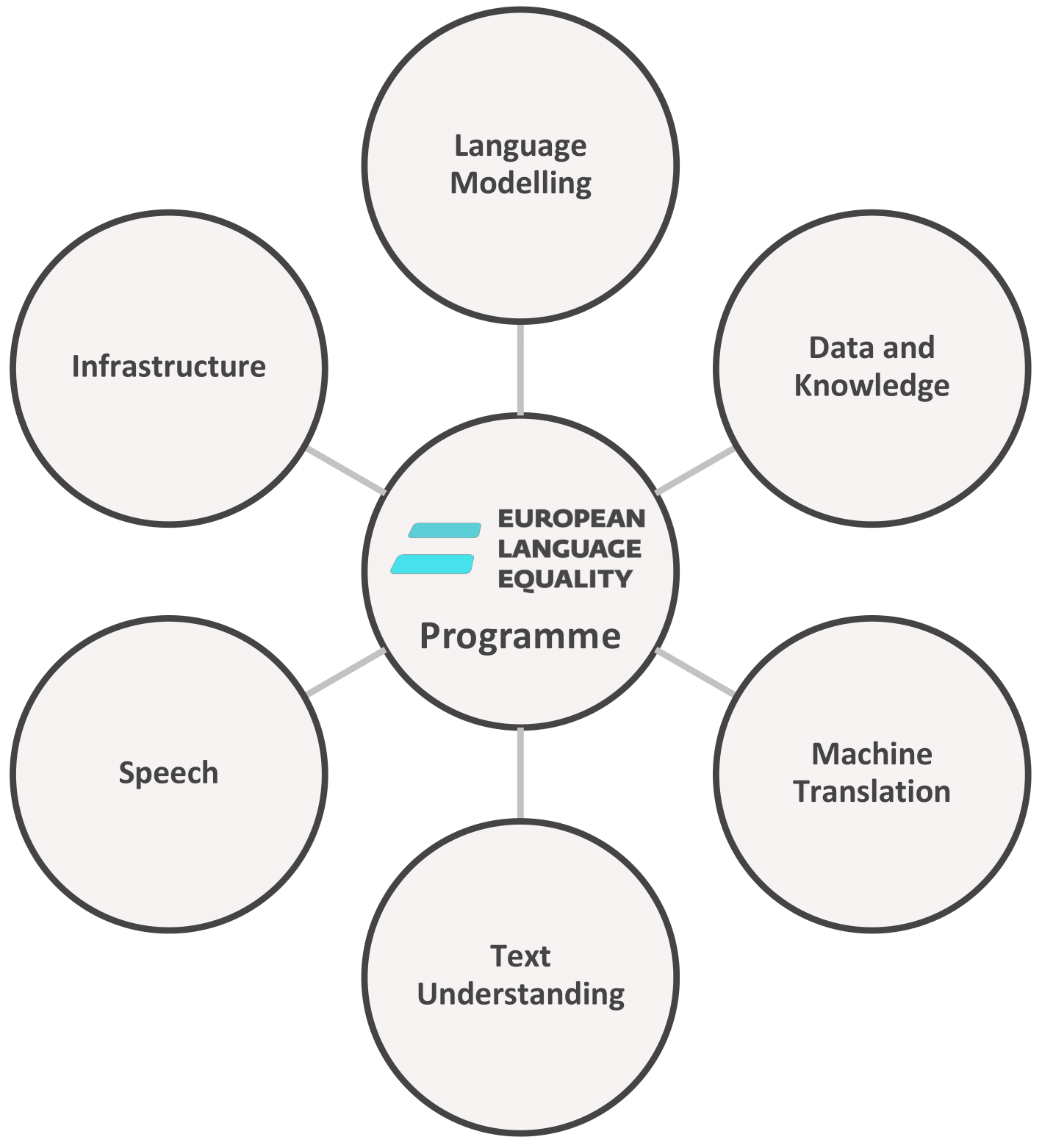Roadmap
Human language technologies have the potential to overcome the linguistic divide in the digital sphere. However, we need to define actions, tools, processes and actors that need to be involved. The goal of this SRIA is to lay out a roadmap with concrete steps for the implementation that carry tangible and measurable outputs and to obtain broad endorsement by the relevant stakeholders.
The main scientific goal of the ELE Programme is Deep Natural Language Understanding in Europe by 2030 (DNLU). This will increase efficiency by sharing knowledge, infrastructures and resources, with a view to developing innovative technologies and services, in order to achieve the next scientific breakthrough in this area and help reduce the technology gap between European languages with the (interdisciplinary) collaboration of research centres, academic experts, enterprises and other relevant stakeholders. Crucially, such a long-term ELE Programme must involve significantly intensified coordination between the European LT research and the industry.
The main societal and economical goal of the ELE Programme should be Digital Language Equality in Europe in 2030. The focus is on language equality and the provisioning of technologies, services and resources outside the often-preferred languages to achieve technological sovereignty in this crucial application area. For minority and lesser spoken languages, we need to find a (technological) way to consider DNLU within a common approach, to create synergies and increase efficiency of the solutions and their design and development. To narrow the digital divide, there is a pressing urgency for novel techniques that would bring less-resourced languages to a level comparable to state-of-the-art results for resource-rich languages.

This includes the leveraging of multimodal and multilingual resources to support the development of applications for languages and varieties with scarce resources.
This roadmap towards Digital Language Equality in Europe by 2030 provides a path and the means to ensure that the two goals outlined above are met. To tackle this challenge, the ELE Programme combines the following six themes.